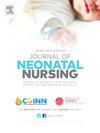父母在新生儿重症监护室以家庭为中心的护理经验:定性专题综合
Q2 Nursing
引用次数: 0
摘要
背景:在新生儿重症监护病房(NICUs)中,以家庭为中心的护理(FCC)强调父母在婴儿护理中的关键作用。然而,新生儿重症监护室环境的各个方面,如物理设计、工作流程、组织文化和员工经验,都可能对其有效实施构成挑战。了解父母的生活经历对于确定FCC的障碍和发现改进的机会至关重要。本研究旨在探讨父母参与新生儿重症监护病房婴儿护理的认知和感知需求。方法利用5个电子数据库进行全面系统的文献综述。我们使用CINAHL、MEDLINE、Embase、Scopus和MIDIRS进行初步研究。该团队使用乔安娜布里格斯研究所的检查表(JBI)评估了综述中包含的全文论文的质量。我们于2024年2月6日完成文献检索。结果本综述纳入17项相关研究。我们的分析确定了与以家庭为中心的护理挑战和/或促进因素相关的四个主要主题:父母心理健康、员工-父母伙伴关系、信息需求和新生儿重症监护病房环境。这些主题突出了影响新生儿重症监护病房(NICUs)以家庭为中心的护理的实施和有效性的关键因素。本综述确定了在新生儿重症监护病房提供以家庭为中心的护理的主要挑战和促进因素,并提出了改进实践的初步建议。虽然FCC的挑战和推动者在世界范围内存在,但它们对实践的影响可能因文化信仰和医疗保健系统而异。然而,解决信息需求、加强员工与家长的合作以及支持家长的心理健康是改善儿童儿童通信的挑战和机遇。本文章由计算机程序翻译,如有差异,请以英文原文为准。
Parents' experiences of family-centred care in neonatal intensive care units: A qualitative thematic synthesis
Background
Family-centred care (FCC) in Neonatal Intensive Care Units (NICUs) emphasizes parents' crucial role in their infant's care. However, various aspects of the NICU environment—such as physical design, workflow, organizational culture, and staff experience—can pose challenges to its effective implementation. Understanding parents' lived experiences is essential for identifying barriers to FCC and uncovering opportunities for improvement. This study aims to explore parents' perceptions and perceived needs regarding their involvement in their infant's care in NICUs.
Methods
The authors conducted a comprehensive systematic literature review using five electronic databases. We identified primary studies using CINAHL, MEDLINE, Embase, Scopus, and MIDIRS. The team assessed the full-text papers included in the review for quality using the Joanna Briggs Institute checklist (JBI). We completed the literature search on the February 6, 2024.
Result
We included 17 relevant studies in this review. Our analysis identified four main themes related to family-centred care challenges and/or facilitators: Parental Mental Health, Staff-Parent Partnership, Informational Needs, and the NICU Environment. These themes highlight critical factors that impact the implementation and effectiveness of family-centred care in neonatal intensive care units (NICUs).
Conclusion
This review identified key challenges and facilitators in delivering family-centred care in NICUs and provided initial recommendations for improving practice. While FCC challenges and facilitators exist worldwide, their impact on practice may vary depending on cultural beliefs and healthcare systems. However, addressing informational needs, enhancing staff-parent collaboration, and supporting parental mental health present both challenges and opportunities for improving FCC.
求助全文
通过发布文献求助,成功后即可免费获取论文全文。
去求助
来源期刊

Journal of Neonatal Nursing
Nursing-Pediatrics
CiteScore
2.00
自引率
0.00%
发文量
143
期刊介绍:
Aims & Scope: This is the practical, bimonthly, research-based journal for all professionals concerned with the care of neonates and their families, both in hospital and the community. It aims to support the development of the essential practice, management, education and health promotion skills required by these professionals. The JNN will provide a forum for the exchange of ideas and information between the range of professionals working in this field; promote cooperation between these professionals; facilitate partnership care with families; provide information and informed opinion; promote innovation and change in the care of neonates and their families; and provide an education resource for this important rapidly developing field.
 求助内容:
求助内容: 应助结果提醒方式:
应助结果提醒方式:


